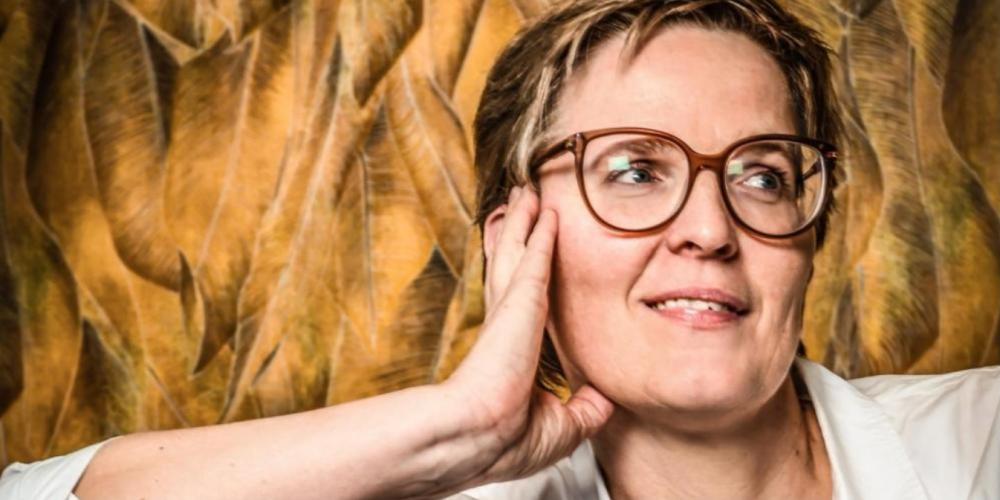
Every year in Belgium, almost 69,000 people receive the news that they have cancer. Of these, more than 26,500 are between the ages of 15 and 64, which means they are in the midst of their working life. For all those people, their lives are completely turned upside down: first the news that they have an often life-threatening disease, then the start of treatment, then recovery, returning home, and then going back to everyday life, for example by returning to work. These are all points where people could find it helpful to have someone to guide them. Here, VUB professor psychologist Elke Van Hoof introduces the Chair of Coaching for Cancer, which explores the potential of this guidance.
What does the chair entail?
The chair deals with two questions: on the one hand, it seeks to define the concept of “coaching”, and on the other, it aims to determine what the added value of coaching during and after cancer can be.
The term “coach” or “coaching” has no single definition; it is used for all sorts of things. In the existing literature, it is difficult to determine whether this is a discipline or a method or technique. So it’s also difficult to focus on what the added value can be and where this added value can best be seen in the cancer journey. If it is a discipline, then it becomes a profession. If it is a method, then the issue is to teach it properly to everyone who plays a role in the cancer journey.
When can these coaching techniques be applied?
In every transition period: at the time of diagnosis, treatment, recovery, reintegration. That’s the benefit. Coaching can offer the patient an anchor point throughout the process, including when they return to work.
What do you do as chair holder?
I am the academic coordinator and give direction to the chair: what are the objectives and how do we approach it? I also coordinate with our funders, the Candras Foundation and Stichting tegen Kanker. Candras wants to raise awareness of care initiatives offered in support homes all over Belgium. Stichting tegen Kanker works to get more funding for cancer research.
How does the chair’s research work?
We have one researcher, Pierre Gérain, who conducts the research with me. There are two parts to the research. First, browsing the available scientific literature to come up with a definition of the concept of coaching. And second, a participatory method to arrive at the identification of the added value of coaching during and after cancer.
How much need is there for coaching among patients?
It’s clear that cancer turns many patients’ lives upside down. The impact varies from patient to patient and even over time for a particular person. For example, they may experience the lack of a listening ear, perspective, translation of treatment to their own needs. What does the disease mean to me? How can I continue my life as well and as qualitatively as possible during and after cancer? So we also look at the methodical approach to offer a fixed anchor point throughout the process.
Patients are looking for care and security. They’re also part of a network of family, friends, colleagues; this network needs support too. And the need for help varies from person to person. Some need it more than others. For some, it’s about self-management, e.g. how can I still move while in pain? For another, it’s about identity. How do I reinvent myself so I can function in the workplace? So coaching also needs to be flexible.
Do coaches need to understand the healthcare system?
“Our healthcare system is complex. And when you’re faced with cancer, it is difficult to understand such a complex system, let alone find your way through it. We still expect patients to adapt too much. As a result, patients experience stress not only from the confrontation with cancer or the physical symptoms resulting from treatment, but also from a system that’s not always geared to their needs. From this perspective, it is interesting to look at a concept like coaching. Coaching can be a way to support the patient when needed and requested.”
When can we expect results?
“We expect to have the outcomes ready by the end of this academic year, in September 2023.”
You can find more information about the Chair of Coaching in Cancer on this website.
Vrije Universiteit Brussel and UZ Brussel fight against cancer
Saturday 4 February is World Cancer Day, the day when the world remembers the impact of cancer. As an Urban Engaged University, the Vrije Universiteit Brussel is committed to the fight against cancer through education and scientific research. The UZ Brussel, the university hospital of the VUB and affiliated with the Faculty of Medicine and Pharmacy, is an important partner in care, education and research.
By combining knowledge and experts on cancer, both institutions want to contribute to a better social awareness of cancer and cancer research. Because more awareness is needed for the prevention and cure of cancer and it also benefits the search for cancer remedies and the well-being of cancer patients.